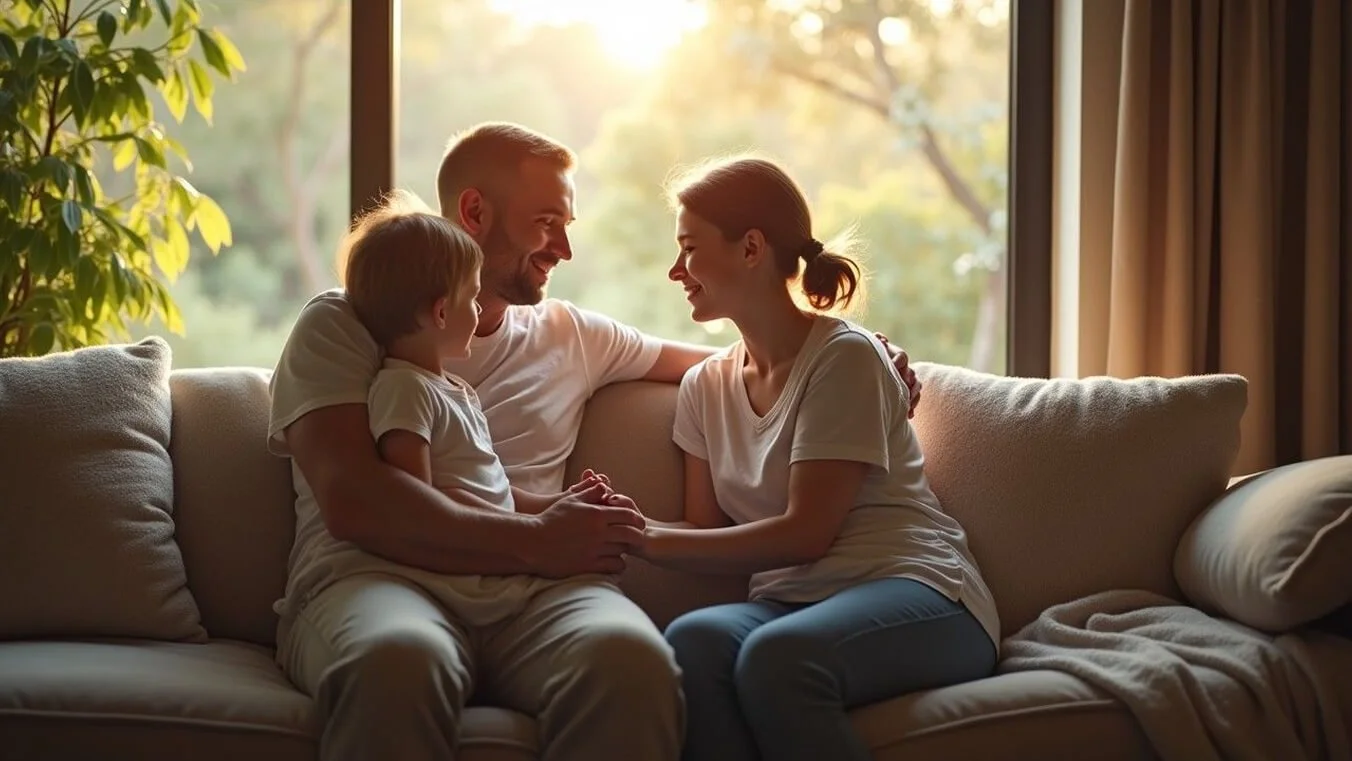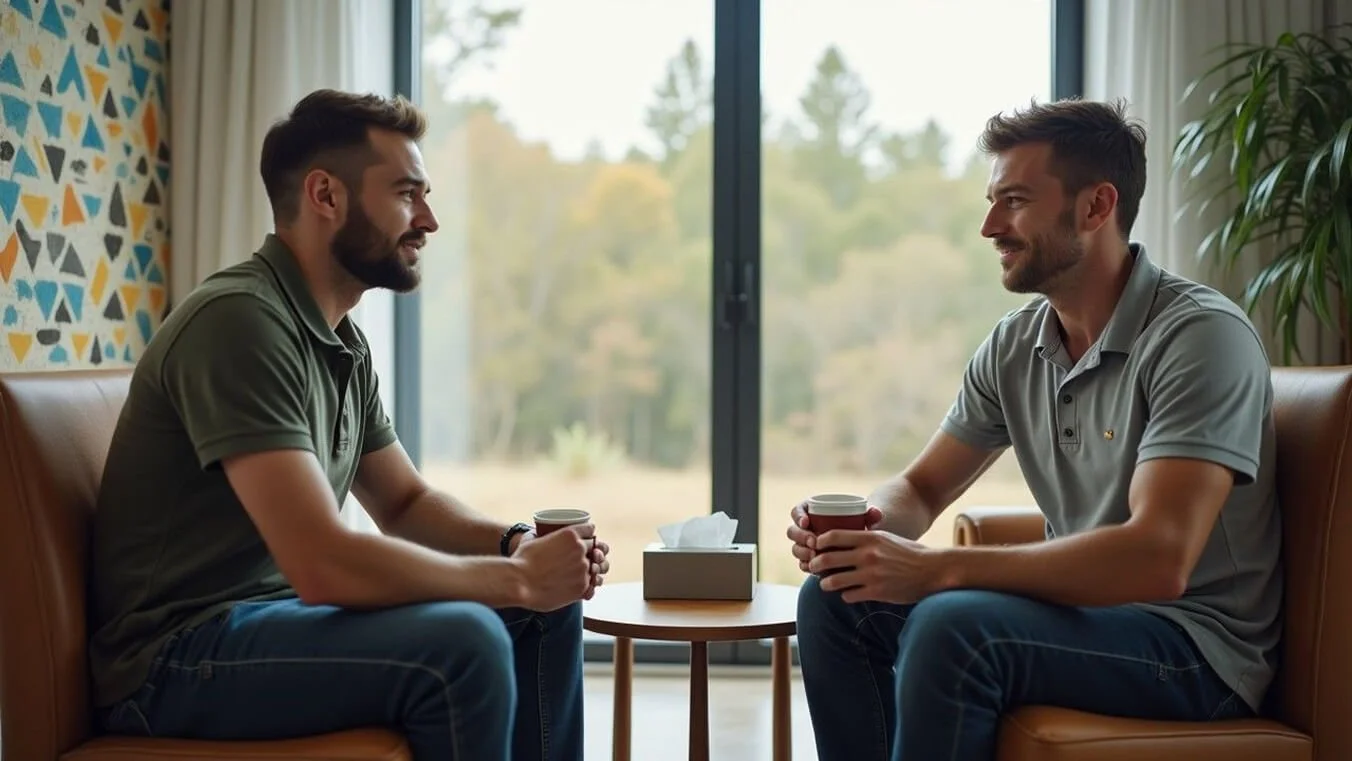Support Veterans in Hospice Care: DVA Benefits and End-of-Life Services
Knowing how to support veterans in hospice care becomes crucial when facing life's final chapter—yet many veterans and families struggle to navigate DVA's end-of-life benefits. We support veterans in hospice care by ensuring they access every entitled benefit, from Gold Card coverage to family respite services, without the usual bureaucratic runaround. DVA provides comprehensive hospice support, including home nursing, pain management, and bereavement counselling, but understanding eligibility and application processes often proves overwhelming during an already difficult time. Let's cut through the complexity and show you exactly how to access dignified, fully-funded end-of-life care that honours your service.
Start Your DVA Claim Today
We’ve helped 7,000+ veterans claim $800M+ in Permanent Impairment payouts. With zero upfront fees, you only pay for successful claims.
Understanding Hospice Care for Australian Veterans
Hospice care provides comfort-focused treatment when curative options are no longer the goal. For veterans, this means specialised support that addresses both physical symptoms and the unique psychological needs that can arise from military service.
Veterans often face specific challenges at the end of life that civilian hospice programs might not fully understand. Service-related injuries, PTSD, survivor's guilt, and unresolved trauma from deployment can resurface during this vulnerable time. That's why veteran-specific hospice care matters—it provides staff trained to recognise and address these unique needs.
The transition to hospice care doesn't mean giving up. It means shifting focus to comfort, dignity, and making the most of remaining time with loved ones. For many veterans, accepting this support can be difficult after a lifetime of self-reliance and service to others.
DVA Coverage for End-of-Life Care Services
Your DVA card type determines the level of hospice care coverage available to you. Understanding these differences helps ensure you receive all entitled benefits during this critical time.
Gold Card Coverage
Gold Cardholders receive the most comprehensive coverage. As outlined in DVA's hospital services information, Gold Card veterans have access to:
Full coverage for all clinically required palliative and hospice care
No copayments for hospice services
Choice of home, hospital, or community hospice settings
All medications related to the hospice diagnosis
Medical equipment and supplies
24/7 nursing support when needed
White Card Coverage
White Card holders can access hospice care, but coverage depends on whether the terminal condition relates to accepted service injuries. DVA's health services overview confirms that White Card coverage includes:
Hospice care for accepted service-related conditions
Mental health support without prior approval
Coverage must link to accepted disabilities
No copayments when criteria are met
If your terminal diagnosis stems from a non-service-related condition, you'll need to explore Medicare or private health insurance options alongside your White Card benefits.
Types of Hospice Support Available
Veterans can choose from several hospice care settings, each offering different levels of support based on individual needs and preferences. The DVA Community Nursing program provides various options.
Home-Based Hospice Care
Most veterans prefer receiving end-of-life care at home, surrounded by familiar comforts and family. Home hospice includes:
Regular visits from registered nurses
Pain and symptom management
Personal care assistance
Medical equipment provision
24/7 on-call support
Respite care for family caregivers
Our experience shows that staying home often provides the greatest comfort, but it requires adequate family support and a suitable living environment.
Hospital Palliative Care Units
When symptoms become complex or home care isn't feasible, hospital palliative units offer:
Intensive symptom management
Round-the-clock medical supervision
Specialised pain control
Family accommodation options
Transition planning if returning home becomes possible
DVA covers all clinically required hospital palliative care without copayments.
Community Hospice Facilities
Dedicated hospice facilities provide a middle ground between home and hospital care:
Homelike environment with medical support
Private rooms for dignity
Family visiting flexibility
Specialised staff trained in end-of-life care
Bereavement support services
Accessing Mental Health and Emotional Support
End-of-life brings unique psychological challenges for veterans. Past trauma, unfinished business, and service-related mental health conditions often intensify during this time. The DVA mental health services provide crucial support without requiring prior approval.
Veterans in hospice care can access:
Psychiatric consultations
Psychological counselling
PTSD-specific treatments
Medication management
Spiritual care services
Peer support from fellow veterans
Family members also need emotional support. Watching a loved one approach end-of-life while managing practical care needs creates immense stress. DVA recognises this by providing family counselling and support services throughout the hospice journey and extending bereavement support for 12 months after death.
Many veterans suppress emotions until faced with mortality. Our role at Veterans First Consulting includes helping veterans access these mental health services as part of their overall care plan. No veteran should face their final battle alone or unsupported.
Family and Caregiver Support Services
Families bear significant responsibility when veterans receive hospice care, especially at home. DVA provides several support mechanisms to help families manage this challenging time.
The Veterans' Home Care program offers practical assistance, including:
Respite care to give family caregivers breaks
Personal care assistance
Domestic help with cleaning and meals
Home modifications for safety
Equipment loans for mobility and comfort
Respite care proves particularly valuable, allowing family caregivers to attend appointments, rest, or simply take time for self-care. This support helps prevent caregiver burnout—a real risk when providing intensive end-of-life care.
Financial pressures often compound during hospice care. Families may face lost income from caregiving responsibilities, travel costs for visiting veterans in facilities, or unexpected expenses. Understanding available DVA benefits and entitlements becomes crucial for financial stability during this time.
Communication between medical teams, veterans, and families requires careful coordination. DVA-funded care coordinators can help navigate between different service providers, ensuring everyone stays informed about care plans and changes in condition.
The Application Process for Hospice Care Benefits
Accessing DVA-funded hospice care requires proper documentation and clinical assessment. While the process might seem daunting during an already difficult time, understanding the steps helps ensure timely access to services.
First, your treating doctor must provide a referral confirming:
Terminal diagnosis with a prognosis of six months or less
Shift from curative to palliative treatment goals
Clinical need for hospice-level care
Recommendation for care setting (home, hospital, or facility)
For Gold Card holders, the process flows smoothly—present your card and the medical referral to your chosen DVA-approved hospice provider. The provider handles DVA billing directly.
White Card holders face an additional step—confirming the terminal condition relates to accepted disabilities. This might require:
Medical evidence linking conditions
DVA assessment of eligibility
Potential delays during verification
We strongly recommend starting the application process early, even if you're still considering options. Having approvals in place provides flexibility when care needs change suddenly.
Common Challenges Veterans Face
Despite available support, veterans encounter several obstacles when accessing hospice care. Recognising these challenges helps in overcoming them.
Pride and Independence: Many veterans struggle to accept help after lifetimes of self-sufficiency. Reframe hospice care as earned support for your service, not charity.
Complex Medical Needs: Service-related injuries often complicate end-of-life care. Ensure your hospice team understands your full medical history, including military exposures and injuries.
Family Dynamics: Military families may be geographically scattered or strained by years of deployment separations. Early planning helps coordinate family involvement.
Bureaucratic Delays: DVA processes can move slowly, especially for complex cases. Working with advocates like Veterans First Consulting helps navigate the system efficiently.
Limited Rural Services: Veterans in regional areas may have fewer hospice options. Explore telehealth support and travelling specialist services available through DVA.
Additional Resources and Support Networks
Beyond direct medical care, several organisations provide valuable support for veterans in hospice care and their families.
Open Arms – Veterans & Families Counselling offers free counselling services, including:
Individual and family counselling
Group programs for specific needs
24/7 crisis support helpline
Bereavement counselling extending beyond DVA's 12-month provision
Legacy Australia supports families of deceased veterans with:
Financial assistance for dependents
Educational support for children
Social connections with other veteran families
Advocacy for benefit access
The DVA Planning Ahead guide helps veterans and families prepare for end-of-life decisions, including:
Advance care directives
Power of attorney arrangements
Funeral planning with DVA benefits
Will preparation and estate planning
Planning Ahead: Making End-of-Life Decisions
Taking control of end-of-life planning empowers veterans and relieves family burden during emotional times. DVA encourages early planning through various support tools.
Start conversations with family about:
Preferred care settings if health declines
Resuscitation and life support wishes
Funeral and memorial preferences
Distribution of military memorabilia
Messages for loved ones
Document these preferences formally through:
Advance Health Directives are recognised in your state
Enduring Power of Attorney appointments
The update will reflect current wishes
DVA funeral benefit pre-planning
Consider creating a "military story" document sharing:
Service history and achievements
Important military relationships
Lessons learned from service
Messages for fellow veterans
This legacy helps families understand your service impact and provides comfort during grief.
Maximising Your DVA Entitlements for End-of-Life Care
Many veterans don't realise the full extent of available DVA support during end-of-life care. Beyond basic medical coverage, your entitlements include the Repatriation Pharmaceutical Benefits Scheme (RPBS) covering all medications without copayments for Gold Card holders, DVA-funded transport to appointments, including taxi vouchers and accommodation support, comfort equipment like hospital beds and mobility aids for home use, and funeral contributions to help families manage final expenses.
Working with Veterans First Consulting ensures you're accessing every entitled benefit—we've seen too many veterans miss crucial support simply because they didn't know to ask. Our comprehensive entitlement reviews ensure nothing gets overlooked during this important time, because these aren't handouts—they're earned benefits recognising your service and sacrifice, and using them honours that service while providing deserved comfort in life's final chapter.
Simplify Your DVA Claim: Get the Compensation You Deserve
Veterans First Consulting has secured $800M+ in DVA claims for 7,000+ veterans. Let us handle your new claim or reassessment. With zero upfront fees, you only pay for successful claims.




